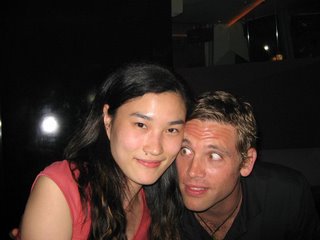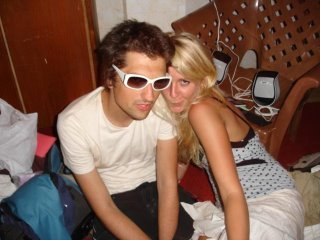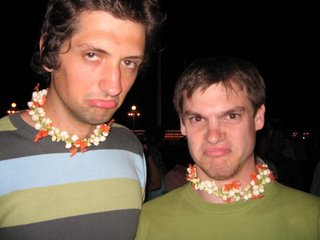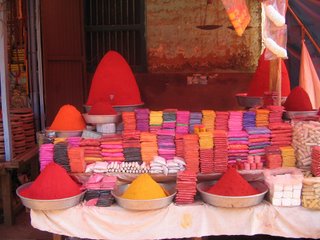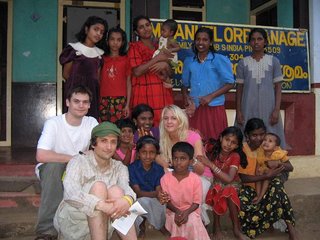Life in the eighties was good. Perhaps I should qualify that, it was good for me, a kid in the South East of England - no doubt for the rest of the world it was as terrible as it ever was. But for me it was a time of bold primary colours on bowed cathode screens - the Amstrad CPC with it's formidable 26 colour palette vying with the Transformers animated series for my sense of awestruck wonder. Not for me the worries of the world stage, not a care for dwindling resources and the subtleties of power struggles between nations - just a mild obsession with what life would be like in the year 2000+. This was an unimaginable amount of time into the future - I'd be 26 ! Pushing a zimmer frame, but with millions in the bank ... if people wore calculator watches that even stored phone numbers in the mid 80s, it was inconceivable that there would not be flying cars and robots doing all the work.
You can guess the sense of disappointment I feel now. Quite frankly I feel cheated. True we have ready access to the Internet - the sum total of human knowledge, culture and unprecedented ease of communication - but lets be honest, 99% of the time it's used by people for free music and dirty pictures. But ! It turns out that at 26 I've had a small glimpse of what the future in England might have been like if everything had
just been a bit cooler. Here taxis open their doors as they approach their fares, high speed trains that resemble the inside of the space shuttle rotate their chairs for cleaning, and the whole thing is set against a Bladerunner-esque backdrop of light drizzle and neon signs that turn the night sky light grey.
So ... it was a shock to find that in such a high tech place none of our bank cards worked. Oho ! What fun ! Our hubris in assuming we could roll up and snatch some readies from anywhere backfired mightily. It turns out that none of the local banks hook up with anything outside the country ... even if it does say VISA on the ATM. Ha ha ha ! Look at these two idiots, bumbling around on a Sunday night, with literally
no cash at all, hungry and unable to understand anything anywhere. Given the shenanigans a couple of nights previously, that were only sorted out with the aid of a lot of ready cash, it's safe to say we weren't happy. To cut a long story short, we had our accomodation sorted out in the form of two rooms in the Hotel New Azuma (room dimensions 2.5 paces by 4, enough to lie down in but otherwise fine) and we managed to get ourselves sorted out the next morning. We then got on a high speed
Shinkansen train to Kyoto and booked ourselves into the awesome K's House (voted #1 backpacker hostel in Asia, and a veritable budget paradise).

I think it's safe to say that Kyoto is the most beautiful place I have ever been, the blossom from the trees floating delicately in millimetres thin streams, evoking the exquisite haiku of 17th century poet Basho. The default religion of Japan is
Shinto, which places a lot of emphasis on the beauty of nature - and it shows in just about everything around you. Interestingly, Shinto does not preclude other religions, and indeed has led to certain integrations with other faiths (most notably different sects of Buddhism - which was apparant in the temples of Nara and East Kyoto).

Back on the bikes for a morning cycle around the town, the babblings of lysergic troubadour Syd Barrett on Pink Floyd's
Bike seeming appropriate. The first stop was the Kyoto National Museum, which while not as large or grand as some of London's offerings has a wealth of interest and beauty within it. While my overall knowledge of sculpture is best described as "piss poor", it is still an artform which I find hugely interesting - a cast of Rodin's
Le Penseur broods over the entrance to the museum. Inside, huge wooden Buddhist figures stood with such defined contours and lines that after a while the shadows seemed almost to suggest breathing. I had my own cliched expectations of what Zen and Shinto artworks would be like, my knowledge beforehand being limited to images such as
The Great Wave by Hokusai. I was instead struck by the vivacity and energy of the screen prints, even in greyscale. On to the Sanjusangen-do temple, where 1001 gilded statues of Kannon, a Buddhist goddess stand watch, side by side, and each uniquely different. Visitors can write hopes and wishes on candles, which when burnt make the impassive faces shimmer as the laminar flow of heated air rises from the wicks.
In the grounds we were approached by a group of schoolchildren who asked if they could practice their English with us. We of course said yes, being very familiar with the process of being goaded by a teacher to approach people at random and embarass yourself. About 12 years ago in Mainz, Germany in our case. Anyway, they did very well and much bowing and shaking of hands followed - Dan's crafty use of
domo origato dozaimasu causing a standing ovation from the kids.
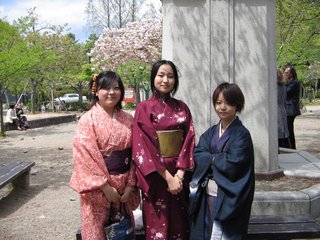
Before leaving England, I had talked to my uncle Mick about going to Japan - his advice was to seek out some jazz because he had heard it was very popular over here. He should know because he has an impressive knowledge of music with a collection to match, and strangely, cookbooks as well. In any case, he wasn't wrong - our first proper night out in Japan was spent at the splendid Blue Note bar. I've been to some awful "Jazz Clubs" in England, which are basically the same as overpriced high street bars but with a stricter dress code - which is so conducive to the spontaneity and expression that I love about music.

Anyway, this was a world away from all that - the bar was lined with a fantastic collection of jazz records, the barman flipping LPs between serving up generous measures of bourbons and single malts. I drank Four Roses on the rocks whilst a very accomplished local quartet played and I drunkenly tried to explain intervals, modes and chord structures to Dan on the piano motif that lined the bar. I only hope nobody else heard any of it, because they would have probably laughed their heads off. It's always interested me the different ways you can view music - on the one hand it's something that is a product of wave mechanics and set theory, rigid physical laws, yet it produces such an emotive effect on people and sometimes sparks abstract imagery in the mind. The quartet started with some of the filthiest trumpet ever committed to the air, which quickly collapsed to a silky flowing line, and I was reminded of water and rain frequently as they played their set - large warm drops falling in suspended fourths and dominant sevenths, reflected in the polished black mirror of the lid of the piano - light rivulets forming and racing along the ride and snare - breaking applause following accomplished trumpet solos performed without show. When it was done we went on to some other bars, and failed miserably to find out about some other local music (to be fair, our attempts at communication were limited to writing "Yellow Magic Orchestra" and "Melt Banana" on napkins and thrusting them at people).
 A big thank you to Iain (centre), Fiona and Darius (left) for putting us up in Inuyama - it was much appreciated and very generous. They are all currently working for Nova, a company that provides jobs for teaching English in Japan. Listening to their day to day experiences, and the setup that Nova provide you makes me think this would be something I'd be interested in pursuing in the future. Sunday evening was spent in La Cavalera, a fantastic bar owned by Kei (right), which also doubles as a tatoo parlour. They serve burritos and snake whiskey, oddly there's Belle & Sebastian on the stereo - good times. We were introduced to Ray, a friend of Iain's who also works as an English teacher, and an absoloute gent. He's lived an extremely interesting life so far, and has a wealth of knowledge about the local area - he showed us around Inuyama castle (built in 1537, the oldest standing in Japan) in the morning, and explained the customs of a recent yearly festival. Huge multi storey contraptions are pushed around by the men of each neighbourhood, whilst drinking lots of beer and smoking. The top storey of the cart usually houses a puppet show giving a rendition of traditional folk tales, and the whole thing has hundreds of candle-lit lanterns hanging off of it that could go up at any time. Precarious is one of several words that leap to mind.
A big thank you to Iain (centre), Fiona and Darius (left) for putting us up in Inuyama - it was much appreciated and very generous. They are all currently working for Nova, a company that provides jobs for teaching English in Japan. Listening to their day to day experiences, and the setup that Nova provide you makes me think this would be something I'd be interested in pursuing in the future. Sunday evening was spent in La Cavalera, a fantastic bar owned by Kei (right), which also doubles as a tatoo parlour. They serve burritos and snake whiskey, oddly there's Belle & Sebastian on the stereo - good times. We were introduced to Ray, a friend of Iain's who also works as an English teacher, and an absoloute gent. He's lived an extremely interesting life so far, and has a wealth of knowledge about the local area - he showed us around Inuyama castle (built in 1537, the oldest standing in Japan) in the morning, and explained the customs of a recent yearly festival. Huge multi storey contraptions are pushed around by the men of each neighbourhood, whilst drinking lots of beer and smoking. The top storey of the cart usually houses a puppet show giving a rendition of traditional folk tales, and the whole thing has hundreds of candle-lit lanterns hanging off of it that could go up at any time. Precarious is one of several words that leap to mind. Banzai ! Overexposed Sake ! We drank our fill of this and then went to the karaoke bar ...
Banzai ! Overexposed Sake ! We drank our fill of this and then went to the karaoke bar ... GOLDEN SLUMBERS !! The serenity of Kyoto forever shattered. Yep, that's right they had every single track on Abbey Road. It occurs to me that this sums up the last ten years very well - two idiots, off their chumps on hooligan juice and bellowing their heads off with no regard for time signature, dynamics or melodic consonance. Dan kept banging a tambourine so hard that he had a massive bruise covering most of his leg for the following few days.
GOLDEN SLUMBERS !! The serenity of Kyoto forever shattered. Yep, that's right they had every single track on Abbey Road. It occurs to me that this sums up the last ten years very well - two idiots, off their chumps on hooligan juice and bellowing their heads off with no regard for time signature, dynamics or melodic consonance. Dan kept banging a tambourine so hard that he had a massive bruise covering most of his leg for the following few days. Only one of these people wanted to be in this photograph ... Morton-San plots his escape.
Only one of these people wanted to be in this photograph ... Morton-San plots his escape. Nara was the capital of Japan from 710AD to 784 - this is one of the numerous cultivated gardens that are dotted about the town.
Nara was the capital of Japan from 710AD to 784 - this is one of the numerous cultivated gardens that are dotted about the town. I chanced upon this quintet of loons whilst wandering around central Tokyo, in parts they sounded uncannily like the Cantina band in Star Wars.
I chanced upon this quintet of loons whilst wandering around central Tokyo, in parts they sounded uncannily like the Cantina band in Star Wars. Mount Fuji from the air.
Mount Fuji from the air.








